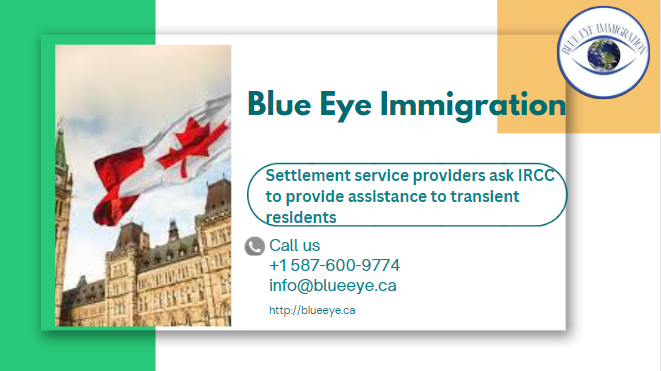The results of Immigration, Refugees and Citizenship Canada’s (IRCC) stakeholder consultations for the CFP 2024 have been made public.
The Settlement Program and Resettlement Assistance program are operated by IRCC to aid immigrants in adjusting to life in Canada. To guarantee that newcomers receive the help they need, the department collaborates with organizations across Canada.
Many of these programs are funded in part by IRCC. The IRCC uses the Call for Proposals (CFP) to create settlement and resettlement initiatives that will have the biggest positive effects on immigrants. Financial support is most likely to go to the initiatives judged to have the greatest impact. The consultations were held in order for the IRCC to get input from the settlement industry on the modifications that were being thought about for the CFP 2024.
The Canadian government spends over $2 billion CAD year on settlement services, including a special grant for Quebec. To determine how to offer assistance, IRCC engages service provider organizations (SPOs), a few organizations that are not supported by IRCC, as well as representatives from the provincial and territorial governments.
Services offered by settlement programs to newcomers include language instruction, assistance in locating job and housing, and information and recommendations. This is crucial because, by the end of 2025, Canada is expected to accept 500,000 new permanent residents annually, however the next Immigration Levels Plan 2024–2026, which will be unveiled by November 1st, may change this amount slightly.
1187 people took part in the consultations this year. Participants were asked to identify departmental goals, good practices in the settlement and resettlement sectors, and areas for development. They also provided input on these topics.
Seven distinct webinars were used to gather the results. In addition to general feedback, IRCC was looking for suggestions on CFP 2024 priority areas. These comprised:
- Suitable Services
- Right Clients, Right Timing, Innovation/Outcomes, and a Pathway for Francophone Integration
- main areas for development
Participants agreed that there is a pressing need to make temporary residents who are applying for permanent status eligible for settlement services. This covers temporary foreign employees and international students.
Currently, the majority (but not all) of IRCC-funded settlement programs are intended for permanent residents, their wives and children, and individuals who have been granted asylum.
There are around 2.2 million temporary residents in Canada, according to the latest recent statistics on population from Statistics Canada.
According to Marc Miller, Canada’s Minister of Immigration, there will be 900,000 foreign students studying there by the end of 2023, and 1.4 million individuals will be working here.
Given the government’s willingness to assist Ukrainian temporary residents who entered Canada via the Canada Ukraine Authorization for Emergency Travel (CUAET) program, it was argued that expanding services to temporary residents would be feasible. The Atlantic Immigration Program (AIP), a distinctive economic immigration program in Atlantic Canada, also offers this help to temporary residents who take part in it.
The research also said that participants in every webinar cited having trouble hiring and keeping qualified workers. They claimed that both employees and clients may benefit from easier access to mental health care. This would entail giving staff members more training so they can identify when immigrants, particularly refugees, are struggling with mental health issues and recommend them for additional evaluation.
Participants discussed the necessity for a centralized procedure, for instance, to ensure that all arrivals are aware of the settlement services that are available to them, beginning with the immigration process before they even arrive. Others added that assessment should take place continuously rather than just at the time of entry.
Participants also suggested that IRCC provide SPOs more latitude in how funding is allocated so they may better respond to customer requirements. The adaptability would enable providers to meet immediate, short-term demands without having to wait for the start of the subsequent five-year financing cycle.
For SPOs, reporting requirements are burdensome
Participants, according to the report, think that reporting (to IRCC) tends to focus too much on quantitative measures rather than the performance and impact of clients.
Participants complained that too many reports focus on quantitative indicators rather than customer success and effect. They claim that indirect services have advantages that iCARE, a platform created to facilitate the delivery of settlement services and the assessment of service activities and outcomes, does not account for.
Smaller SPOs may lack a specialized human resources division with the time to commit to data gathering and reporting. In order to download and modify client data, participants would like to see a more dynamic and adaptable database.
Regional Variations
The report’s conclusion explains how different Canadian regions have varied needs when it comes to welcoming newcomers.
For instance, newcomers in Atlantic Canada depend on volunteers to help them with basic needs like buying necessities or finding housing because there are essentially no public transit choices outside of the major cities. Using SPO funding to reimburse volunteers for travel expenses is not permitted by IRCC.
The Ontario SPOs ask for increased recommendations between service providers as well as increased organizational collaboration. Additionally, there is more temporary finance that is flexible enough to respond to crises while maintaining regular operations.
However, the prairie provinces (Alberta, Manitoba, and Saskatchewan), as well as the Northwest Territories, would like to see an app developed that will enable customers more quickly identify settlement services and make referrals easier. IRCC already offer a specialized application to help newcomers access resources close to them.
Areas Where You Excel
The paper also identifies instances when IRCC has supported SPOs successfully in addition to making recommendations.
Participants also said that many services were easily accessible in a single location after business hours and that there was a high level of collaboration across organizations and governments, particularly provincial and territorial administrations.
Additionally, they said that providing specialized, culturally sensitive treatments, such as mental health with assistance for refugees’ interpretation needs and a “by and for” method of service delivery to Francophone arrivals, had been successful.
